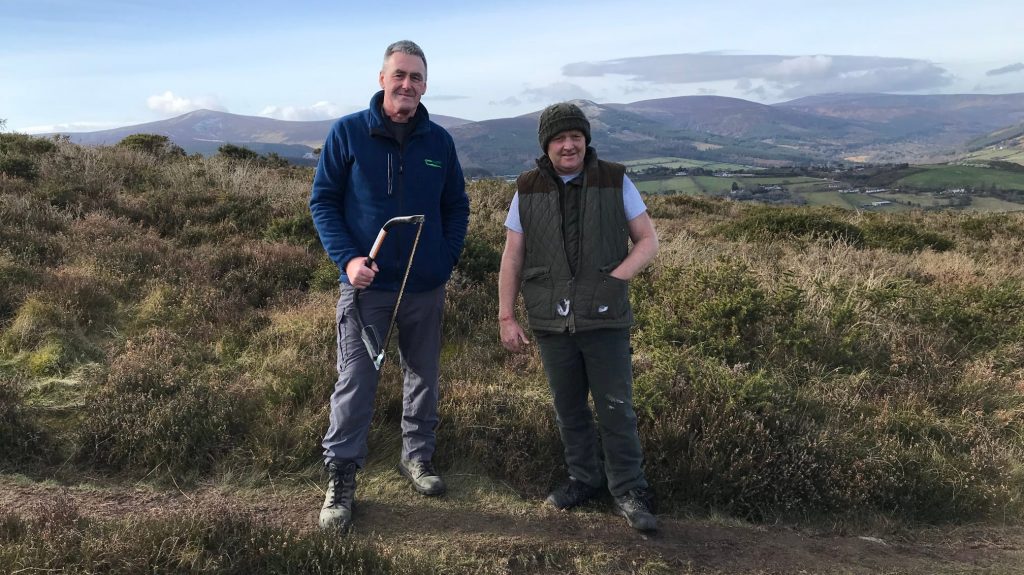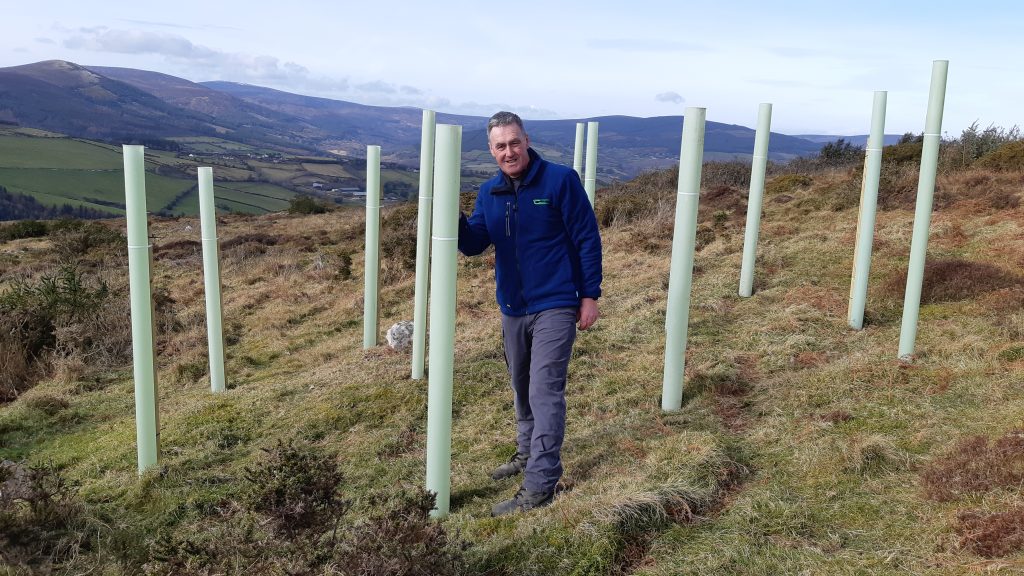News On SUAS Project Initiative for National Biodiversity Week
In celebration of National Biodiversity Week, the Council are profiling a recent initiative of the SUAS Pilot Project that is focussed on creating and restoring healthy upland habitats across the Wicklow and Dublin Uplands.
With upland habitat restoration a key objective of the 5 year project, it recently oversaw a challenging operation on The Glencap Commons, which surrounds the popular Great Sugar Loaf. This localised initiative had two principle strands, which were carried out by farmers participating in the EIP funded scheme, and specially trained contractors for some of the more challenging tasks.
Firstly, working through the permitted season for active vegetation management, an extensive programme to remove non-native tree species across the 313 hectare site was undertaken over the last 18 months. The arrival of these species is likely due to seeds from nearby forestry plantations, which thanks to the prevailing winds, had been distributed quite widely across the area.
The encroachment of invasive species would have most likely accelerated without these intervention measures, as some of the more established trees found during the initial site inspection, had begun to introduce a more localised seed source with the next generation of saplings already appearing. The main reason for their removal, is unwelcome species such as Sitka Spruce create shade and significantly disrupt upland ecosystems by preventing natural and healthy heathland habitats from forming.
The second strand was the planting of native hardwood saplings in clusters across the location that are in keeping with natural upland habitats. The locally-sourced and grown oak, rowan, alder, willow and birch will grow to offer shelter and a welcome food source to wildlife.Additionally, planting in the uplands assists in stabilising soil structures, preventing flooding and run off, and ensuring rainfall is naturally filtered to provide valuable water sources such as the nearby River Vartry.
In time, self-seeding will see further growth of these species and a return to a thriving ecosystem cycle with a mosaic of diverse habitats that supports ground nesting birds and other wildlife. The real success of these types of planned intervention measures, will be observed through the evolving positive change to the local biodiversity in the years and generations ahead.
Through the SUAS Project, the participating commonage groups and individual hill farmers are offered guidance, and training if required, on how to implement a sustainable management plan specific to the location and its characteristics. In this case, the plan for Glencap Commons was designed and implemented through a commonage agreement.
* The programme of works related to tree removal on this location, was undertaken in full compliance of the Heritage Act 2018.







